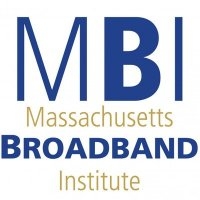By DIANE BRONCACCIO
Daily Hampshire Gazette
WESTBOROUGH – Two days after a volatile informational meeting in Greenfield, Massachusetts Broadband Institute officials met with WiredWest executives in an effort to resolve their differences over how to build a broadband network throughout unserved, sparsely populated western Massachusetts towns.
The MBI is the state agency charged with overseeing the last-mile build-out for remote portions of the state, and WiredWest is the grassroots collaborative formed by the towns that has been working five years to bring high-speed Internet to its member communities. The MBI oversees $40 million in state money allocated for bringing broadband to unserved towns.
On Dec. 1, MBI issued a review critical of WiredWest’s plans and said it would not release state funding for its current proposal — chiefly because of differences over ownership, under the operating agreement that member towns were to have signed by Jan. 9.
Representatives of the two agencies met in MBI’s Westborough office Wednesday afternoon, and another meeting is tentatively planned for January, according to Steve Nelson, legal/governance chairman of WiredWest.
“We made a little bit of progress (Wednesday), trying to break through the clutter,” said Nelson.
MBI issued this statement: “(Wednesday) MBI and WiredWest had a constructive meeting about how to move forward. Based on that session, we will implement a negotiation framework after WiredWest meets with their board on Saturday.
“As we noted in our recent letter, there are many significant issues to be discussed. We are committed to broadband expansion in the region and will continue to meet in good faith.”
On Saturday, WiredWest’s board is to meet at the Hawlemont Regional School in Charlemont to review and possibly revise the draft operating agreement that will eventually be presented to member towns.
Monday night’s meeting in Greenfield brought out hundreds of town officials and residents from western Massachusetts to a room that could only seat 100 people. Many angry people were turned away from the door, and those who were admitted condemned the MBI for telling western Massachusetts towns how to spend their broadband dollars.
Erik Nakajima, director of MBI, said it questioned whether WiredWest’s proposal is likely to succeed or would be a financial risk to the towns.
WiredWest’s plan calls for creating a regional broadband network, paid for through town spending and allocated state funding, with the WiredWest collaborative owning the network and towns owning a share of the company in proportion to how much money they invested in it.
In a meeting Thursday at The Recorder, Nelson and Jim Drawe, vice chairman of the WiredWest Executive Committee, said MBI’s review of the WiredWest plan was based on a preliminary financial document that had been submitted to MBI in June for reaction, but which has been revised six times since then.
“The MBI analysis was at the beginning of the process — not at the end of it,” Drawe said.
Another issue of conflict is whether ownership of the costly broadband network by a municipal cooperative satisfies MBI’s last-mile broadband policy requiring that networks built with town and state money “will be owned by their respective municipalities.”
WiredWest believes a regional network, collaboratively owned, would cost member towns less than single-town build-outs, because multiple towns can share equipment huts and network configurations so that if a wire goes down somewhere service is not interrupted.
Another disagreement is over wording that prohibits member towns from withdrawing from WiredWest for at least the first 10 years — during the four years it takes to build the infrastructure and the next six years, when the subscriber base is growing and the collaborative starts earning a profit. Any member town that does withdraw would be repaid for its capital costs, with WiredWest to retain ownership over the infrastructure and its customers.


